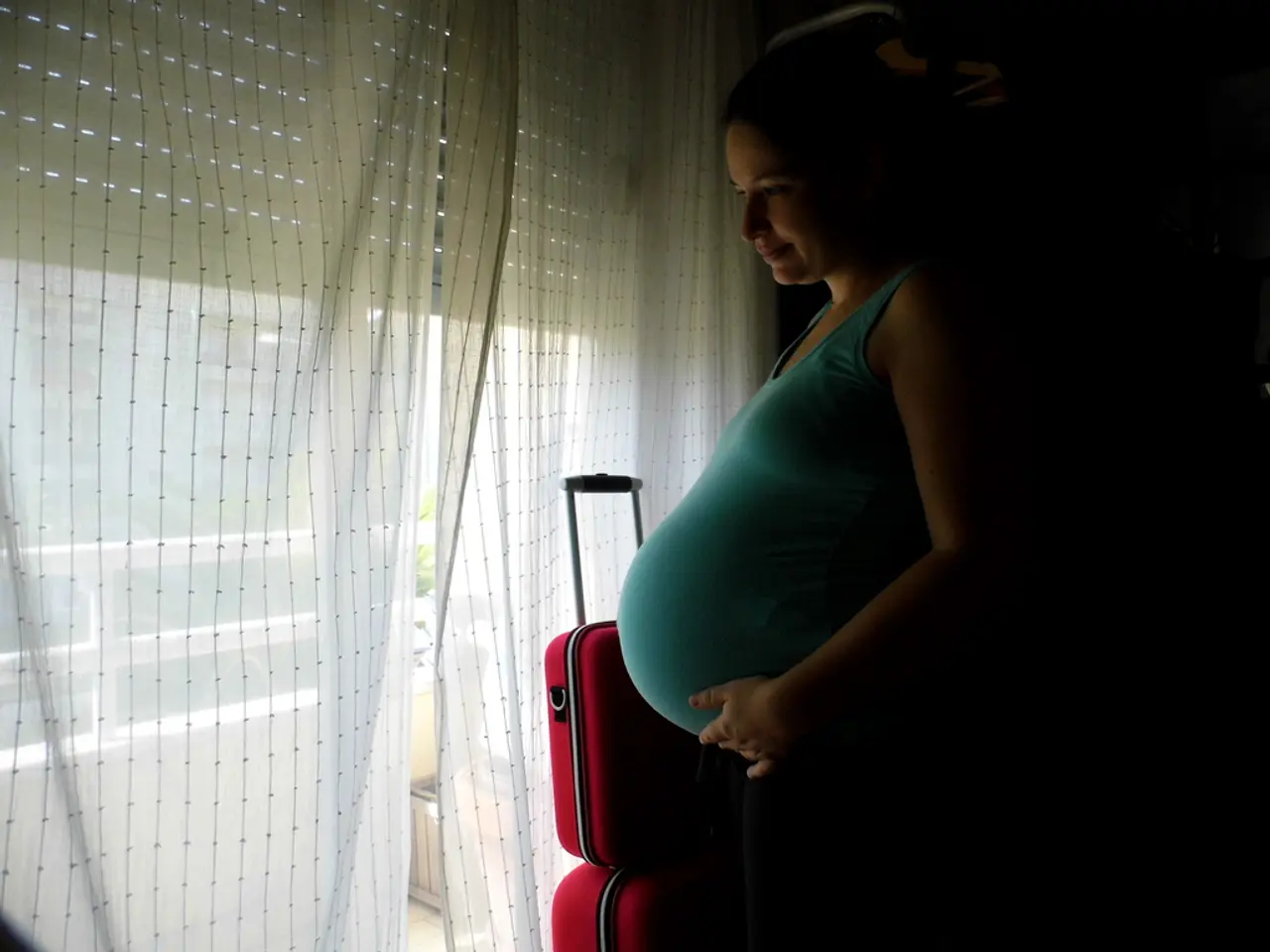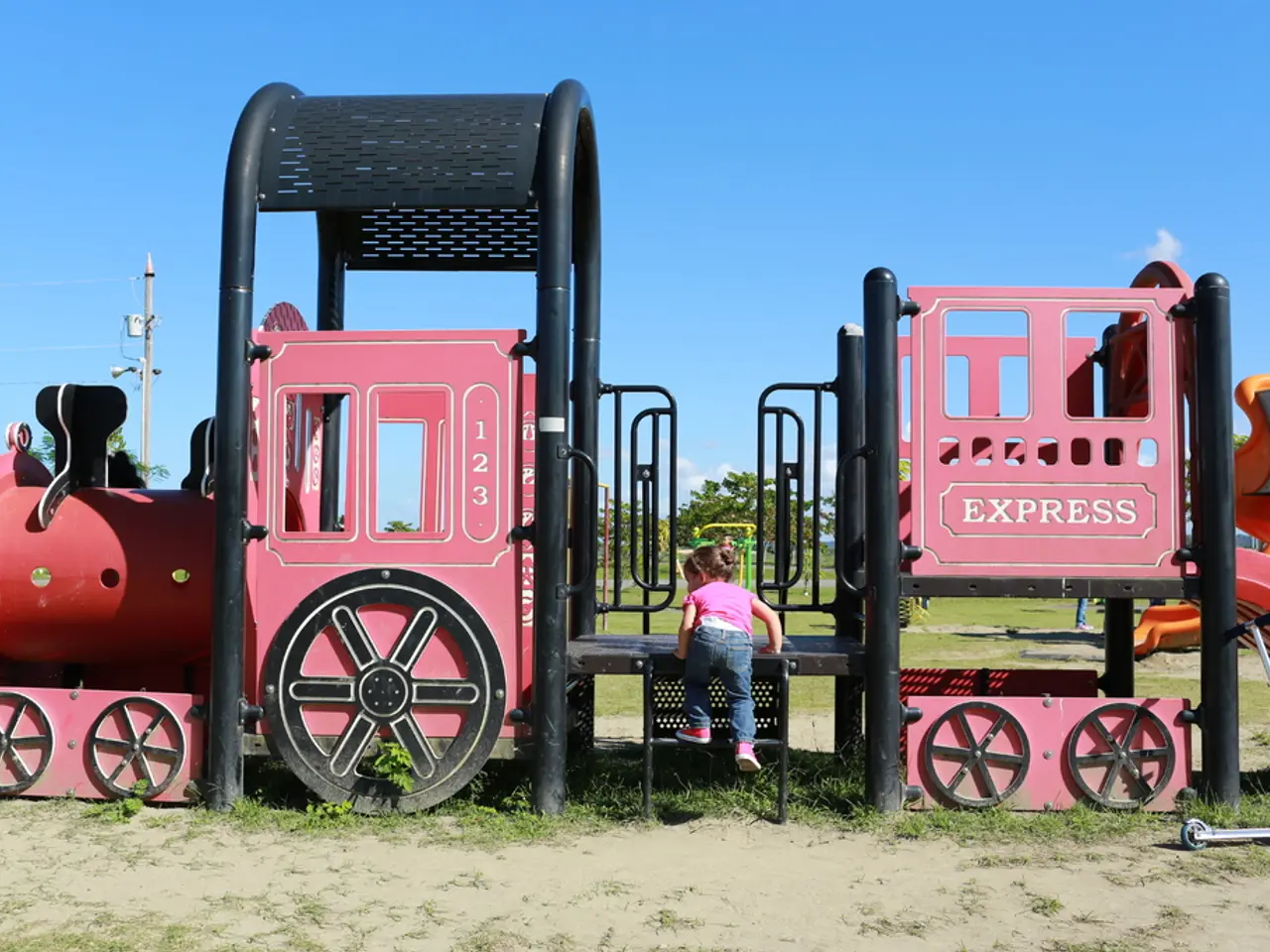Space-borne Infant On the Horizon: Approximating the Distance to This Groundbreaking Event
The journey towards the first space birth is shaping the destiny of our species as we venture beyond the confines of our home planet. This monumental achievement, representing one of humanity's greatest challenges and opportunities, is pushing the boundaries of medical technology, reimagining medical equipment and procedures, and requiring entirely new training programs for medical professionals [1].
Recent advancements in this burgeoning field are spearheaded by the successful launch of a lab designed for in vitro fertilisation (IVF) procedures into orbit by the Eindhoven startup SpaceBorn. This groundbreaking development marks the first test of IVF in the space environment, aiming to study how factors unique to space—such as altered gravity and increased radiation—affect embryo development and epigenetics [1]. The ultimate goal is to automate IVF fully in space, overcoming the manual nature of Earth-based IVF and potentially improving success rates, which have seen little progress over the last decade [1].
Notable interest and funding from both the IVF industry and emerging space nations, including China, the EU, India, Japan, and the UAE, are driving this research forward. The IVF sector values insights gained from space-based embryo development to enhance treatment outcomes on Earth, while emerging space nations seek to establish their presence in pioneering human space exploration milestones, including the ambitious prospect of the first baby conceived or processed in space [1].
Parallel to applied reproductive research, fundamental studies have deepened understanding of pregnancy biology by analysing the fetal-maternal interface at the cellular level across multiple mammalian species. These studies illuminate evolutionary mechanisms that sustain pregnancy, knowledge crucial for addressing pregnancy complications and potentially optimising reproductive success under altered gravity conditions [2][3].
However, the field contends with significant biological uncertainties and technological complexities. The interplay of space-specific factors such as microgravity, radiation exposure, and altered fluid dynamics poses unknown risks to embryo development and pregnancy progression. These factors influence epigenetics and physiological resilience in ways not fully understood, requiring extensive research to elucidate safe parameters for conception, gestation, and birth in space [1].
Artificial womb technology is being explored as a potential solution to space pregnancy challenges, and creating artificial gravity through rotation could solve many of the biological challenges associated with space pregnancy [4]. Space settlements may limit children's opportunities for peer interaction and cultural development due to their initial small size [5]. Children born in space would face unique environmental challenges that could affect their physical and cognitive development [6].
Pregnancy in space presents a maze of biological puzzles for researchers to understand. Space radiation represents a significant threat to both pregnant women and developing fetuses [7]. The cardiovascular system undergoes dramatic changes during both pregnancy and spaceflight, adding another layer of complexity to the study of space pregnancy [8]. Maintaining proper nutrition during pregnancy in space presents unprecedented challenges due to changes in nutrient absorption and limited fresh food sources [9].
Ethical considerations include the potential risks to fetuses and the moral acceptability of subjecting them to space development [10]. Ensuring safety standards and long-term follow-up for children conceived or born during space missions requires frameworks that are still in very early stages of development [11]. The legal implications of space birth are complex, with questions about citizenship and international space law arising [12].
The economic impact of achieving safe space birth would be enormous, unlocking potential for permanent human settlement of other worlds [13]. The scientific knowledge gained from studying space pregnancy and child development will be invaluable for future space colonization efforts [14]. Growing fresh food in space greenhouses is being developed but is still experimental [15].
As private companies such as SpaceX, Blue Origin, and other players move faster than government agencies towards establishing permanent space settlements, international cooperation is necessary for space pregnancy research due to its complexity and cost [16]. Bone density loss is another critical concern in space pregnancies [17]. The confined nature of space habitats could create unique family dynamics and stress patterns [18].
The first baby born in space will represent a fundamental shift in human history, potentially adapted for life beyond Earth in ways we can't yet imagine [19]. This milestone will not only mark a triumph of human ingenuity but also raise profound questions about our place in the universe and our role in shaping the future of our species.
- The field of space-based research is expanding, with space technology reimagining traditional medical equipment and procedures for in vitro fertilization (IVF), as demonstrated by SpaceBorn's orbital lab.
- Beyond reproductive research, ongoing investigations delve into pregnancy biology on various mammalian species, shedding light on evolutionary mechanisms that could optimize reproductive success under altered gravity conditions.
- Despite advancements, the intricate maze of biological puzzles in pregnancy studies is further complicated by technological complexities and unknown risks associated with factors unique to space, like microgravity, radiation exposure, and altered fluid dynamics.
- Parallel to these efforts, the concept of an artificial womb is being explored as a potential solution to space pregnancy challenges, while artificial gravity through rotation might solve many biological concerns.
- The scientific knowledge gained from space pregnancy research will not only revolutionize high-stakes space colonization efforts but also contribute significantly to the wider fields of health-and-wellness, education-and-self-development, and technology.
- As private companies race towards establishing permanent space settlements, international cooperation is paramount for navigating the complexities and high costs associated with space pregnancy research, ensuring the safety and well-being of space-born infants while opening new frontiers for human life in space and beyond.




